Last week I posted part one of my interview with Max Elbaum. Here is part two.
This section of our conversation reflects on the left’s relationship to electoral politics over the past fifty years.
What I appreciate is that these reflections are timely not because Max and the new left ‘got it right’, but because they didn’t. At least at first. Their assessment was wrong. Their strategies didn’t work. And then some set of them decided to shift course.
We are living within the results of a decades long right wing strategy to win power. For many reasons it’s challenging to get a clear picture of the real power that the left has in this moment, and what’s needed in the short and long term. Re-reading this interview, I am sitting with the question: How can we learn from the mistakes and strategic shifts of previous generations as we reflect on and assess what’s needed today?
The topics Max covers below include…
How did parts of the left relate to electoral politics in the 1970’s and 80’s?
How did parts of the left shift from a politics of protest to a politics focused on winning governing power?
What experiments have been made to organize the professional middle class in alignment with the labor movement and the working class left?
And, how, over and over, did Black communities and leadership point a way forward towards building real power and scale? (this is a theme that I’ve only realized in recent reads)
Please note, this interview is from December 2023, over a year ago, way before the election was decided. I shared an excerpt of this piece in October of last year.
Mike: I want to get back to my original line of inquiry. Can you continue talking about the broader trends in the left in the 70’s and 80’s, and particularly how groups related to electoral politics?
Max: The part of the left that I was involved with in the late 1960s and early 1970s was not ideologically anti-electoral.
But we had an assessment - a wrong one as we discovered within a few years - that a very large part of the population had moved past seeing the electoral arena as a viable route for change.
Generally, the Marxist view is that masses of people who want political change will first try to accomplish their goals through the options most readily available. In a society like the US, that means first via elections. Only when that option is pushed to its limits do most people decide they need to pursue tougher and riskier routes. While some people will be convinced that elections have limits in making change, majorities will only come to that conclusion via learning from their experience.
In the late 1960s, the “new communist” part of the left that I was in believed that the aftermath of Mississippi Summer [when the Democratic Party refused to seat the Mississippi Freedom Democratic Party (MFDP) rather than the “official” party delegation which had been chosen in a segregated election, just offering the MFDP two seats] showed many the limits of electoral action. And that the urban uprisings of the mid to late 1960s, and the assassinations of Malcolm X and Martin Luther King, and then Robert Kennedy, underscored that lesson.
So from 1968 through most of the 1970s, we mostly avoided electoral work. There were some exceptions, but they were few and far between. But as important sections of the constituencies we regarded as key to radical change - the African American community in the first place - got more and more into fighting electoral battles, we began to shift. The Harold Washington campaign in Chicago in 1983, the efforts to elect Black mayors in many major cities, and the election of Ronald Reagan in 1980, were major developments that affected our thinking.
Especially significant was Jesse Jackson announcing in 1983 that he would seek the Democratic Party nomination for President in 1984 on a peace, jobs, and justice platform. Jesse’s campaign sparked an outpouring of support and he took steps to form a new umbrella organization, the Rainbow Coalition, that would engage in electoral and non-electoral work linked to his presidential run. At this point, most of the new communist movement, as well as many other radicals who had come out of the 1960s, shifted their assessment decisively and threw themselves into the Rainbow.
Only the people who really were ideologically anti electoral – like, don't have anything to do with it - or third party only – stayed out. People who decided that we had been wrong in our assessment of where the masses were politically [like Max] shifted gears.
Mike: You’re saying, parts of the left you were in said, “Let’s do it. Let's join the Rainbow Coalition. Let’s get involved in a big tent electoral project.”
Max: Yes.
One of the good things about electoral politics is it forces you to think about winning, which means you've got to get a majority. If you're not doing elections and you're just doing demonstrations, well, you can have 1100 people. That's great. But you don't have a measuring stick of where you are in relation to power in the country.
Between the demise of the Rainbow Coalition [a major container for progressive and left activism from 1983 to 1988-1990] and 2015-2016, the left was a protest movement. That's what we were doing.
There were a few groups that had some kind of power building strategy, but basically there wasn't much of an opening. There was no practical way for political power to be at the center of the agenda. I mean, you could vote for Obama, which was good. I voted for Obama. I was in Times Square in 2008 when they called the election for Obama. It was totally emotional. We [the left] could, and did, make contributions to important movements - for global justice, for lesbian/gay rights, against the so-called “War on Terror” and so on. But important as this activity was, it was protest, not politics.
But in 2015-2016, with Trump and Bernie and Hillary, all of a sudden everybody wakes up to the fact that it actually matters who's in office. All of the questions of political power come flooding onto the agenda. And the whole conversation on the left shifts. So now everybody's talking about power building strategy, coordinating electoral and non-electoral work, obtaining governing power. Those conversations did not exist in that way before 2015.
Old communists like me basically got trained on the idea that politics is the fight for state power. That's number one. That's what being a revolutionary means. Many of us passed through a stage of thinking that only storming barricades, only some form of insurrectionary action, was truly revolutionary. But somewhere in the 70s or 80s, pretty much most of the people who believe in the importance of state power figured out that in an advanced industrial country, a country with an established electoral system, you can't circumvent that system if you want to take a path to power. You have to go through it. You have to get a share of governing power through the system.
Like Maurice Mitchell, Executive Director of Working Families Party, says, you have to get enough power within a rigged system to unrig it. I think for most of the revolutionaries of my generation who are still active in left politics, that kind of perspective has become integral to our strategic thinking. It resonates with our training and what we’ve learned about political change in this country in the decades we’ve traversed. That's become our lodestar.
I think this brings back into focus one of the positive components of the Communist tradition. Of course we need to critique and shed the more negative features of the outlook many of us were trained in - ultra leftism, anti-democratic practices, and what I’ve termed a “quest for orthodoxy” dogmatism.
But bringing back the idea that we need to be on a path to political power for workers and the oppressed, and recognizing that winning elections to get governing power within the existing system is a necessary step on that path…I think that is a step forward. It is valuable for my generation and for the generation of radicals who have come up in a protest movement era. It provides more guidance about where to go than just [uses air quotes] “movement building.” You know, everybody talks about movement building and movement building is certainly part of what we need to do. But movement building toward what?
Mike: Yes! This makes a ton of sense. I’m absolutely part of this trend you’re talking about, post Trump, of embracing the project of winning governing power in a whole new way.
I think we’re in a powerful moment where there’s a bigger hope for what our movements can be than ever before. Even while the progressive/left in the US is still way smaller and less powerful than what’s needed. It's tens of thousands or hundreds of thousands, not tens of millions.
Max: We did move millions of people in 2020. And we have faced a rocky road since then. But the potential core to build that broader thing is there. If we can make it through 2024 and actually beat Trump and the Republicans, there are some real possibilities. It's not all totally bleak. I mean, I think we face a heavy lift.1
Harold Meyerson's analysis in The Prospect (December 14, 2023) examines every aspect of the Heritage Foundation's "Mandate for Leadership" plan. It provides the most thorough overview yet of their proposed agenda. It starts with a look at Trump himself and his extreme and vindictive rhetoric, including calling political opponents "vermin.”
What's particularly alarming is how brazen the Right is with these proposals – they're openly publishing detailed plans for the fascist state. They are shameless. In June [primaries], that's on the agenda.
Mike: I think what's frustrating to me is that if Trump is the nominee, we're going to see hundreds of millions of dollars move. Suddenly all the wealthy liberals and leftists are going to shit our pants, and find we suddenly have deeper pockets than we could tell before. And it’s going to be too late to scale up the ground game in all the ways that are needed.
Part of what I'm thinking about – and I know Movement Voter Project, Way to Win, Committee on States, Solidaire have been thinking about this for the last years – is how do we get that early money moving now. Even if it's already a little late.
In my interview with Ludovic Blain, he spoke to the problem of people being more complacent after a win. We need to double down when we win rather than only getting engaged when we're losing.
Max: If we make it through 2024, it will be because lots of people threw down in one way or another, went to swing states, gave money, phone banked, texted, whatever. We have to capture some of those people. We have to build something that multitudes can join and put something on the agenda that people feel a sense of ownership of.
The Communist Party had around 8,000 members in 1921. The number decreased through the 1920’s. But by the 1930’s, it was 10,000 and by the 1940’s, they had almost 100,000. That's a lot of people!
Everyone went to a meeting. It was not a paper membership organization. They didn't have 100,000 deployable cadres [ie leaders], but they had a really large number. This was partly because they brought people in through their satellite groups, like the American Student Union. Or through recruitment in the labor movement, the CIO in particular, which the Communist Party had been instrumental in building. Or through the main organization of the time that was made up of radicalized middle class people, Progressive Citizens of America, which cooperated extensively with the CIO.
Mike: Your comment on the politicized middle class reminds me of a related conversation I’ve been having. My friend Mario Lugay often talks about how we [progressive forces] have political homes for working class people, both in nonprofits, electoral groups and unions, and then we have political homes for wealthy people, like Solidaire.
Non-unionized professional middle class folks don’t really have many places to go to find a political home. It's not that the working class versions or the owning class versions are sufficient; they're not at the scale we need. But there's not a real class conscious place for professionalized, non-unionized, middle class folks, and that’s a set of people who have always played a key role in revolutionary movements.
Max: Well, there have been a few attempts over the years to build organizations bringing together scholars and artists in support of worker causes - I believe one was called the "sausage" or something like that, formed about the time John Sweeney was elected to head the AFL-CIO in 1995.
There was a motion toward revitalizing the labor movement and building links between labor and community and progressive groups outside of trade unions proper. The basic idea was to create a new network mainly composed of academics, an update on what the CIO did in the 1930s. An initial conference attracted hundreds of radical scholars. But it didn’t keep its initial momentum and the project declined and I think then was dissolved.
Still, I think the underlying idea has merit and could come back around again. The need for those kinds of bridging organizations between intellectual/professional/cultural circles and the labor movement is still there. I wouldn't be surprised to see another attempt at something similar in the coming years. It's the kind of thing that tends to cycle back around when the conditions are right.
Mike: Are you talking about professional associations that are aligned with the working class left?
Max: Yes.
And it’s important to understand that the Black church and the labor movement were the base of the left in the United States at the left’s strongest points. We are in a different time with the Black church, with a huge generation gap because younger Black people have been turned off of religion after the sexual revolution and LGBTQ liberation and so on. Except in the evangelical world, organized religion is declining among young people everywhere. So it is not clear that the Black church can play the same role it has played in past generations though I would argue it is still very important. The Poor People’s Campaign is rooted in the church, especially the Black Church. And the labor movement still has immense possibilities.
Today the population of the US is more than double what it was in the 1930’s and 40’s. We need to be thinking of creating a broad coalition for deep-going change that is on an even greater scale, one that is rooted in a host of different constituencies and which gives people who step forward avenues to shape the coalition's strategy.
A vibrant, radical and flexible left will be needed to forge that kind of coalition and take on the tough tasks of keeping it united and combative in the face of an authoritarian MAGA movement that isn't going to disappear just because of one or two electoral defeats.
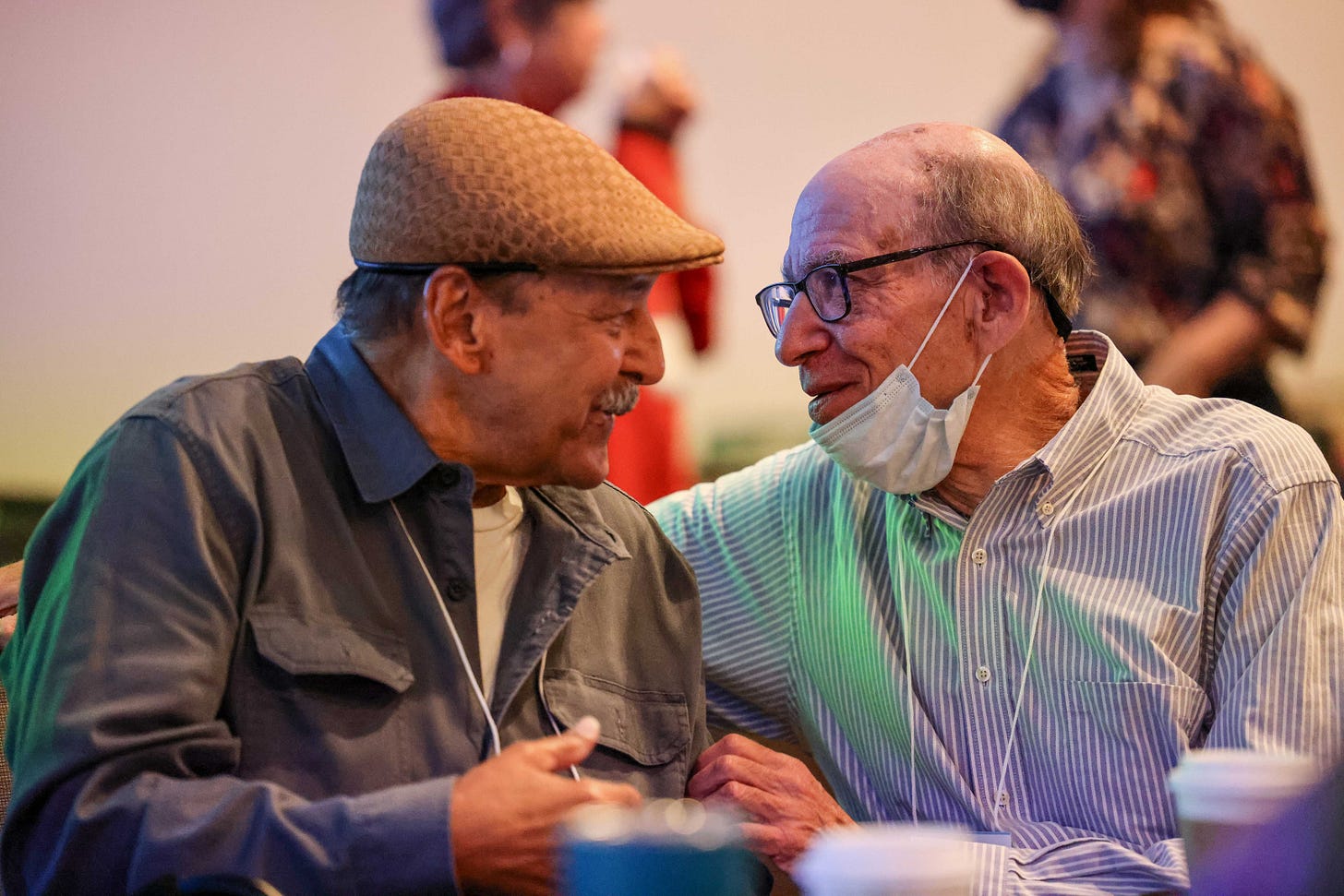
Thank you Max and thank you for reading!
If you liked this post or engaged with it, click the heart below to boost it in the Substack algorithm, or better yet, restack it on Substack Notes.
And thank you to Allison Harrison, who edited and contributed to this piece.




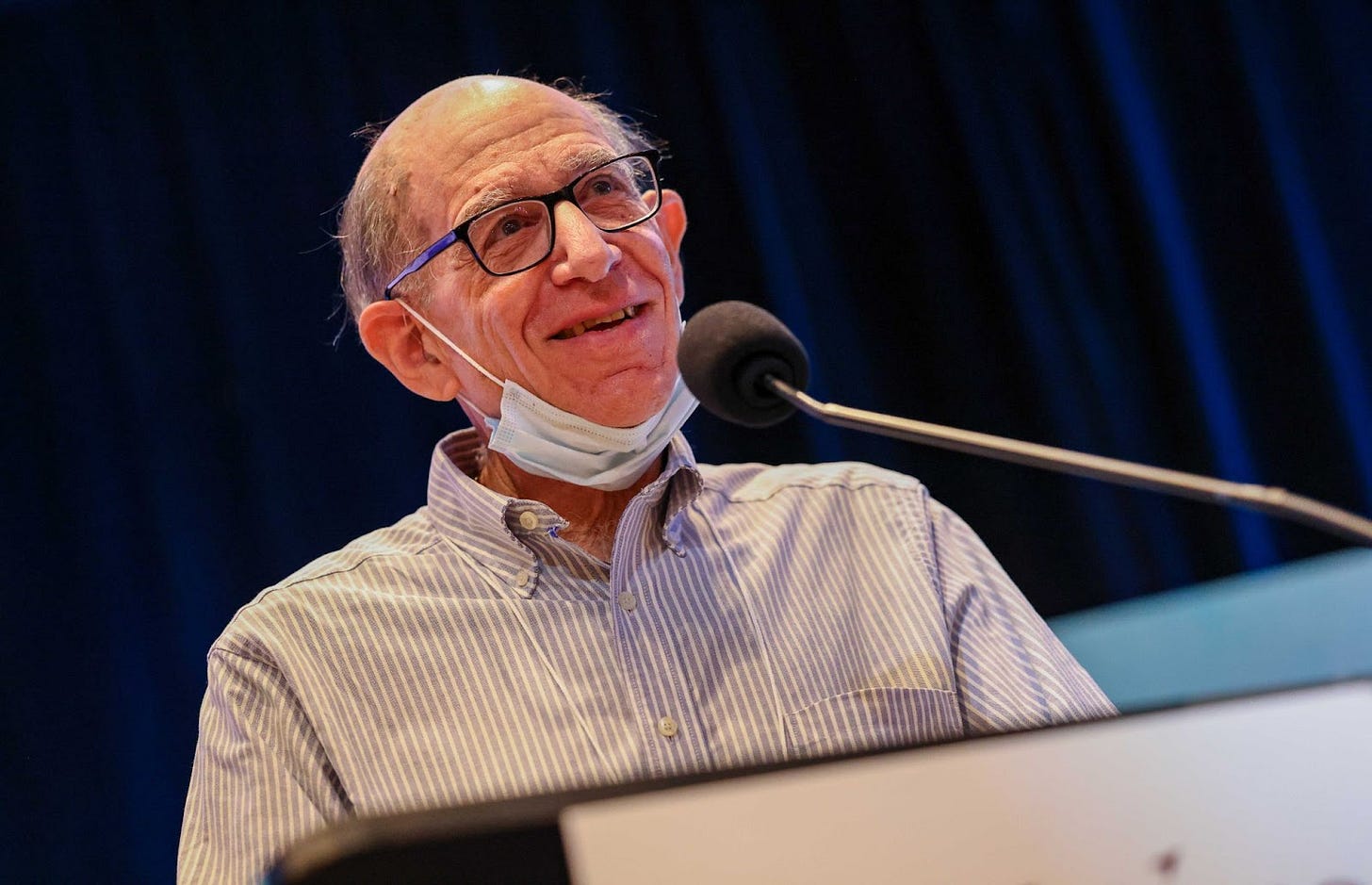
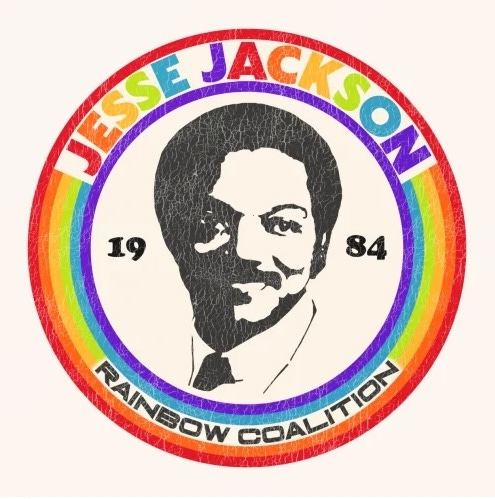
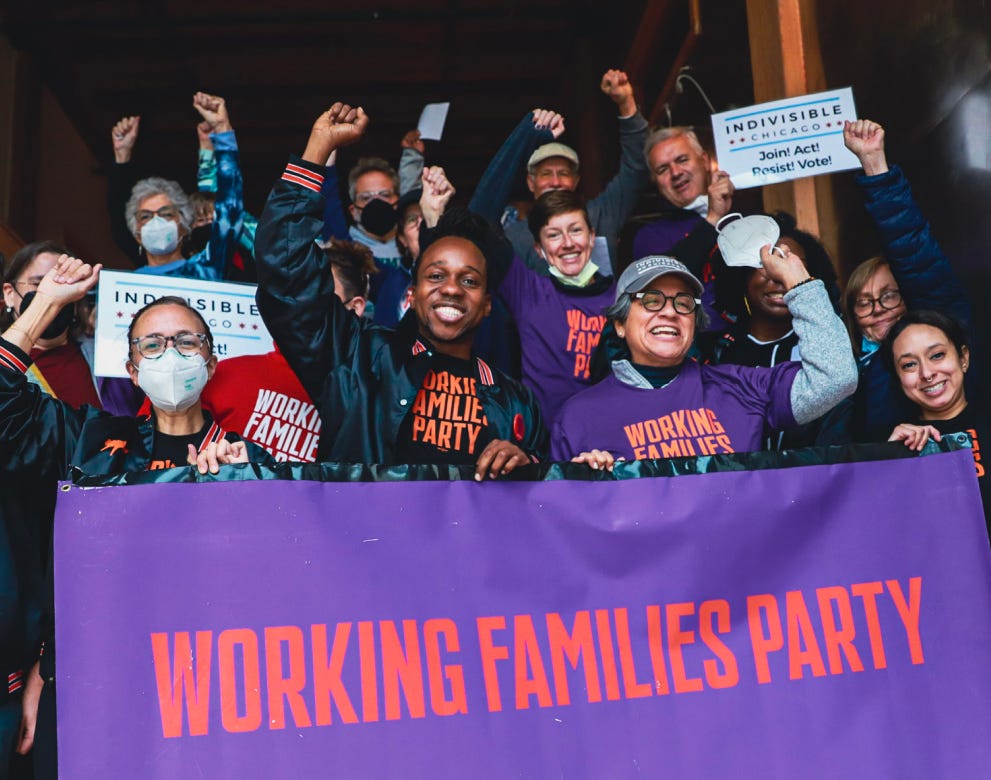
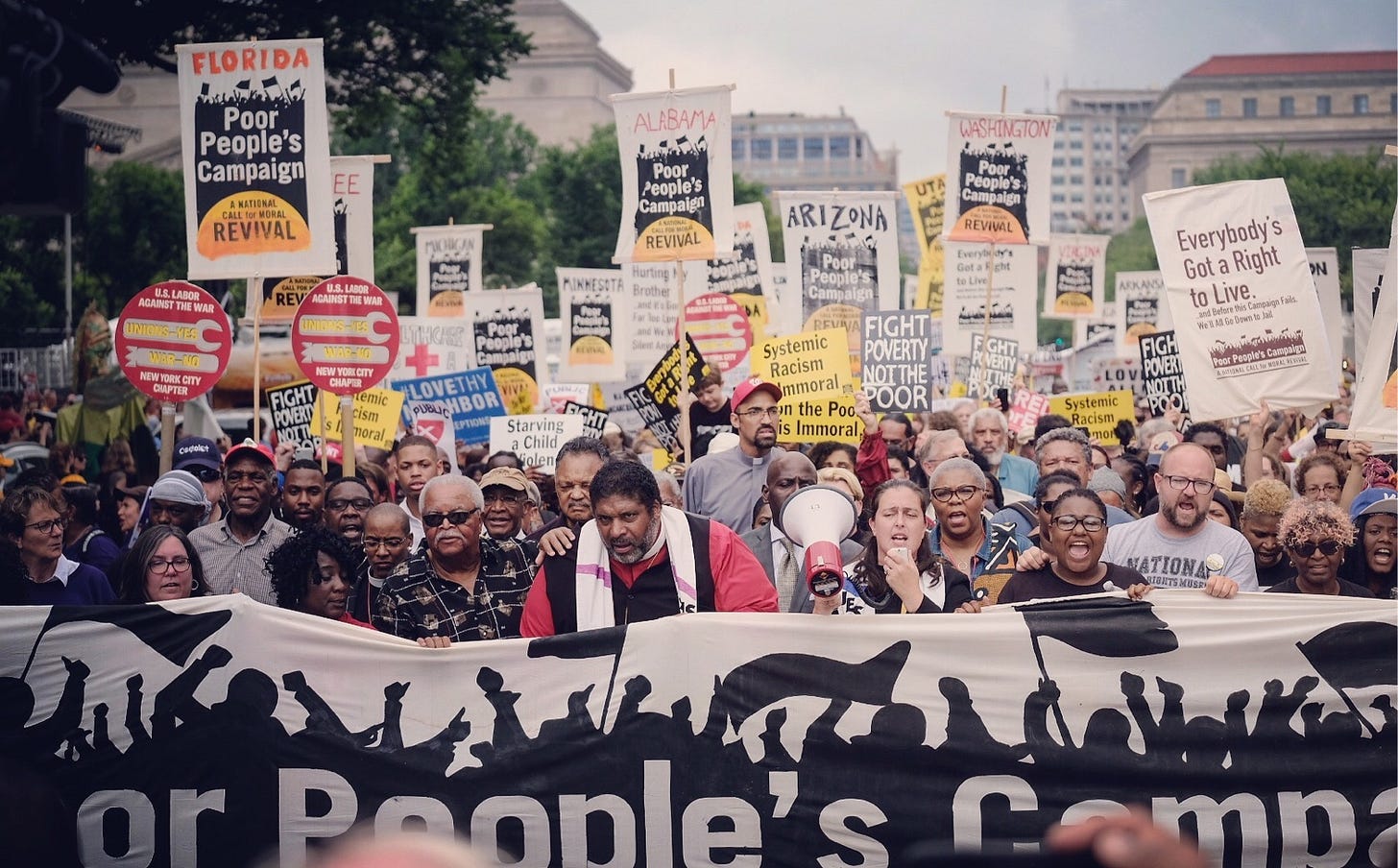
Many narrative strategists and narrative organizing groups have been doing this work of being 'bridging organizations between intellectual/professional/cultural circles'. By nature, this type of work is positioned at this intersection, and must be if it is to be done well. That said, the mechanisms of funding do not readily align with a multisectoral, multidisciplinary way of working, and this is a design flaw that has been standing in the way of this work's flourishing. But we are seeing a shift taking place, and folks like the ones you're lifting up here and in past posts are among those who are leading the way!